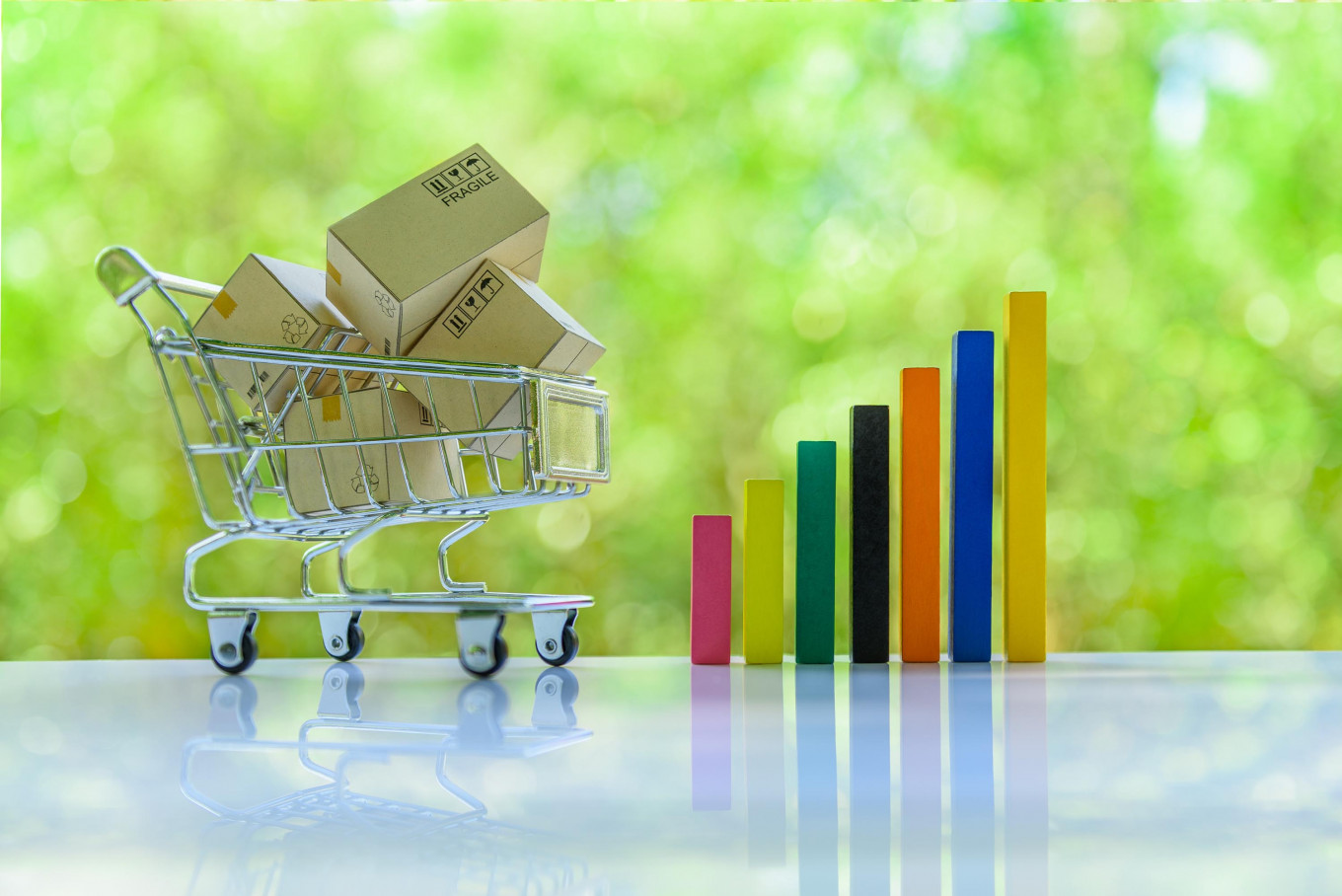Popular Reads
Top Results
Can't find what you're looking for?
View all search resultsPopular Reads
Top Results
Can't find what you're looking for?
View all search resultsE-commerce firms bank on ‘Double Ten Day’
During this year’s “Double Day” held on Oct. 10 (10.10) and Single’s Day on Nov. 11 (11.11), nationwide online retailers saw sales increase 199 percent and 274 percent respectively, compared to sales in June this year, according to a report by online advertising company Criteo.
Change text size
Gift Premium Articles
to Anyone
I
ndonesia’s e-commerce platforms are banking on the sales growth during the so-called “Double Day” online shopping campaign throughout the fourth quarter of the year, as the COVID-19 outbreak accelerates the online shopping trend among consumers.
During this year’s “Double Day” held on Oct. 10 (10.10) and Single’s Day on Nov. 11 (11.11), nationwide online retailers saw sales increase 199 percent and 274 percent respectively, compared to sales in June this year, according to a report by online advertising company Criteo.
“The Double Day shopping festival is continuing to gain momentum in Southeast Asia’s retail scene. In Indonesia, we see sales and online traffic records being made every year,” said Pauline Lemaire, Criteo’s account strategy director for large customers, Southeast Asia, Hong Kong and Taiwan in a press statement on Dec. 3.
She added that retailers needed to take advantage of this year’s National Online Shopping Day (Harbolnas) on Dec. 12 (12.12) to acquire new users and boost sales, especially since the COVID-19 pandemic has accelerated e-commerce usage.
The report noted that during last year’s Harbolnas, Indonesia's online retailers saw a 304 percent increase in sales from June last year. The year end event's jump in sales was far higher than the 196 percent surge in sales in November’s online shopping campaign last year.
E-commerce is still the driving force of Indonesia’s internet economy, according to the e-Conomy SEA 2020 report by Google, Singapore state investor Temasek Holdings and business consultancy Bain & Co. The report stated that the e-commerce industry had grown 54 percent this year, with the potential to reach a gross merchandise value (GMV) of US$32 billion.
The pandemic, which forces people to stay at home, has also brought about a consumer shift to digital platforms.
A Criteo study held in May 2020, titled Peak to Recovery, found that 49 percent of Indonesian consumers had downloaded at least one shopping app during the peak of the COVID-19 outbreak.
According to management consulting company Redseer, the number of Indonesian online shoppers grew to 85 million during the pandemic, from 75 million pre-COVID-19.
The boom in e-commerce purchases happened as the country entered this year its first recession since the 1998 Asian financial crisis, which hit household spending. Household consumption, which accounts for more than half of the country’s gross domestic product (GDP), shrank 4.04 percent in the third quarter, deeper than the 3.49 percent overall economic contraction but better than the 5.52 percent contraction in the second quarter.
However, Indonesian consumer sentiment improved significantly in November to its highest level since March, according to a survey by Bank Indonesia (BI) released on Tuesday. The consumer confidence index (IKK) rose to 92 in November, up significantly from 79 in October. An IKK value above 100 reflects general hopefulness, while a value below 100 signifies pessimism.
The public relations vice president of Indonesian e-commerce firm Blibli.com, Yolanda Nainggolan, said the company had recorded a four-time increase in the number of orders from the daily average during this year’s 10.10 and 11.11 shopping day events.
The company also saw its grocery demand grow five times compared to the pre-COVID era. The demand for mobile phones, tablets and wearable gadgets also grew five times the daily average because people are working and learning from home during the pandemic.
“This strong performance has had a positive impact on all sellers and brands. We hope we can also perform well in the Harbolnas event this December,” she told The Jakarta Post on Tuesday.
Yolanda went on to say that the shopping day event is also an opportunity for the company to work with more small and medium enterprises (SMEs) and promote their goods online. The demand for local products within the platform has grown seven times year-to-date (ytd), according to the company.
“The fourth quarter is a very crucial time for retailers because it is a chance for us to boost sales before the year ends. Harbolnas is also an opportunity for us to deepen collaboration between e-commerce platforms and retailers,” she added.
Similarly, e-commerce platform Bukalapak marketing vice president Erick Wicaksono said on Monday that since the start of its 12.12 shopping event on Nov. 25, the company had seen an increase of more than 20 percent in its GMV compared to last year’s Harbolnas.
“We predict that the GMV will continue to increase until the height of the event from December 10 to 12,” he said in a press statement.
In November, the company reported a 100 percent GMV rise during their Singles' Day event compared to the same event last year. Some of the popular items on sale were related to hobbies such as bikes, gaming consoles, electronics and gadgets, as well as household items.
Bukalapak’s online traffic also grew 500 percent daily during its 10.10 shopping event compared to the normal period.










